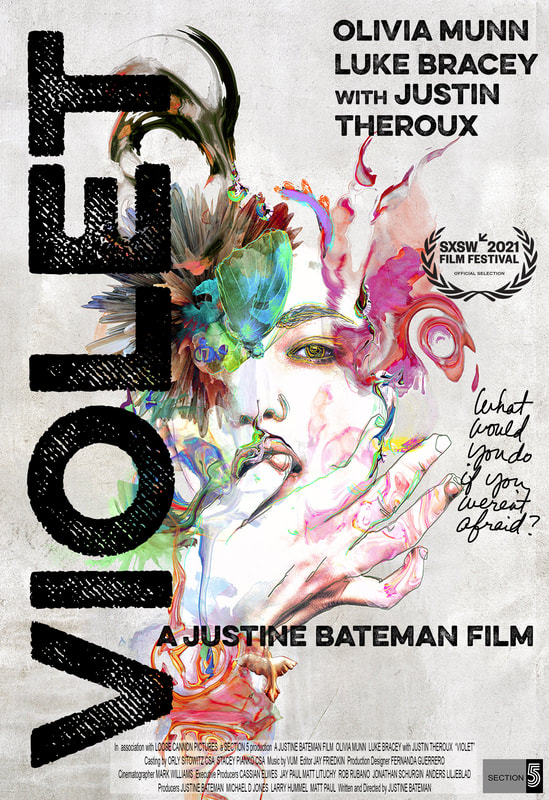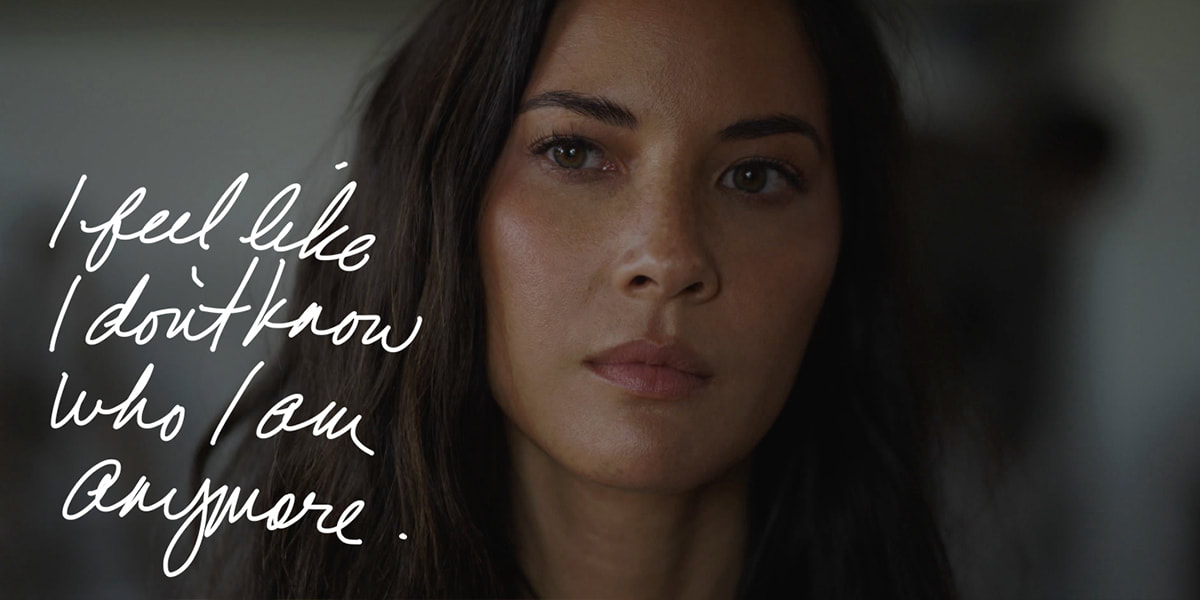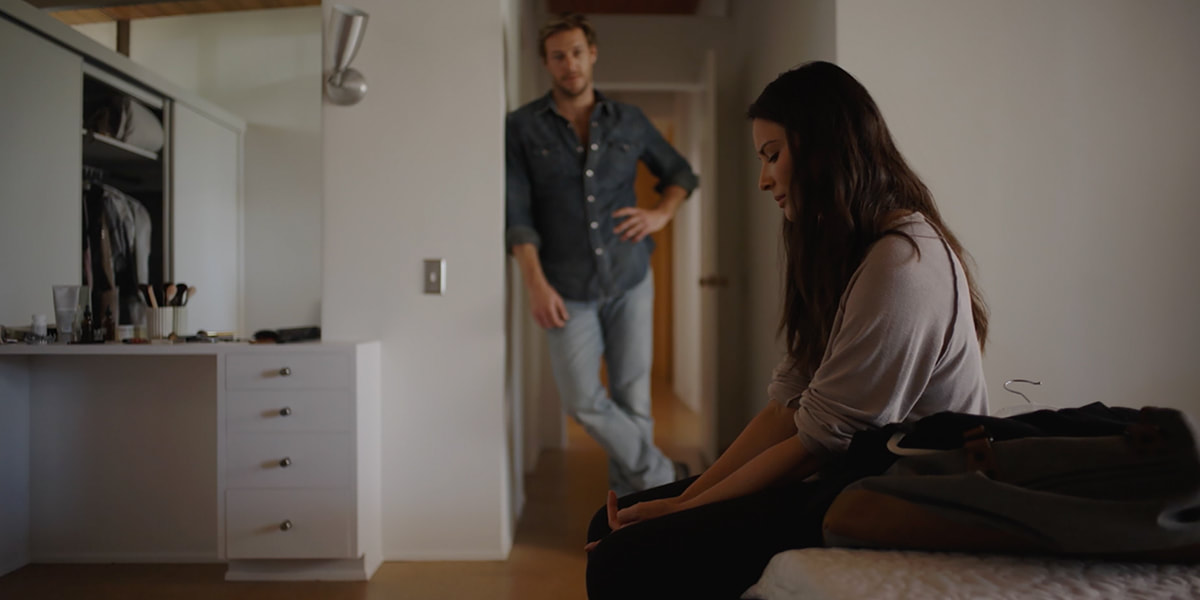Violet Calder (Olivia Munn) seemingly has everything very well put together in her life. She has a successful career, a great wardrobe, and lots of people in her network. You wouldn’t know to look at her that she’s full of anxiety and living with the effects of trauma. “Why have I been afraid to do the things I love?” We join Violet at a crossroads in her life. She’s been held back by so long stuck in a job where she’s unappreciated and undermined. Her love life is going nowhere and she feels a deep need to find freedom. But the only way to achieve this freedom is to recognise and overcome her past trauma and her negative self-talk. Does she have the inner strength to achieve something of this magnitude and change her entire outlook? We are immersed in Violet’s inner thought-life through a variety of techniques. Words often appear on the screen showing us what she is thinking. A voiceover does the same thing, and images flash up in quick succession to reflect her feelings (be warned, some these are quite disturbing). It all creates a visceral and immersive space where we see the world through Violet’s eyes and through the lens of her emotions. These techniques are all disruptive and distracting from the conversations she is having, but that’s the point. Negative self-talk interrupts the mind’s natural flow and calls attention to itself. It constantly nags and doesn’t let you just switch it off. “What’s wrong with me?” This interruption also calls us to look more analytically at what Violet is actually saying and doing, in light of what we know what she’s fighting against and what she’s feeling. When Violet speaks with certain people her mind is flooded with memories of her worst interactions with them. She remembers being berated, feeling ashamed, doing wrong. This is a wonderful way to show trauma response and the rising panic of having something trigger bad memories. Against this near-constant flow of anxiety and negativity Violet faces an enormous inward struggle to overcome those natural urges and to seek truth. After all, inner doubt is a manipulative liar. Often the familiarity of shutting yourself away feels better than the overwhelmingly difficult task of opening up, or recognising that you deserve better. “I feel like I don’t know who I am any more.” Having Violet be outwardly successful and well put together is also a great way to show that you never know what’s going on in someone’s head. She shrugs off compliments because they make her feel not just uncomfortable but like a fraud. The people you assume to be fine may well be the people you should create a safe supportive space for. Those who don’t speak up about the problems they face may well be pushing them down and struggling inside, not wanting to become a burden or look vulnerable. The film shows so perfectly how someone may be desperate for your company and inwardly begging for you to stay, but feel unable to vocalise that. Thankfully we see how a supportive and forgiving friendship can open up the cracks and help someone to be honest with you and with themselves. “Violet” is a bold film which tries to capture something incredibly specific and nuanced. We immediately root so hard for Violent and invest in her personal development. Some may see the constant barrage of visual and audio interruptions as style over substance. But that’s the point, fear and self-doubt don’t leave you alone. Bateman should be applauded for taking a risk, for experimenting and succeeding. The film is distressing and overwhelming in parts but ultimately encourages us all to overcome self-doubt and negativity, and to reach for our goals. You never know what success you might find if you undo the chains that hold you down and took a leap of faith in yourself. What would you do if you weren’t afraid? Comments are closed.
|
AuthorHi, I'm Caz. I live in Edinburgh and I watch a lot of films. My reviews focus mainly on women in film - female directors or how women are represented on screen. Archives
December 2021
Categories
All
|





 RSS Feed
RSS Feed
